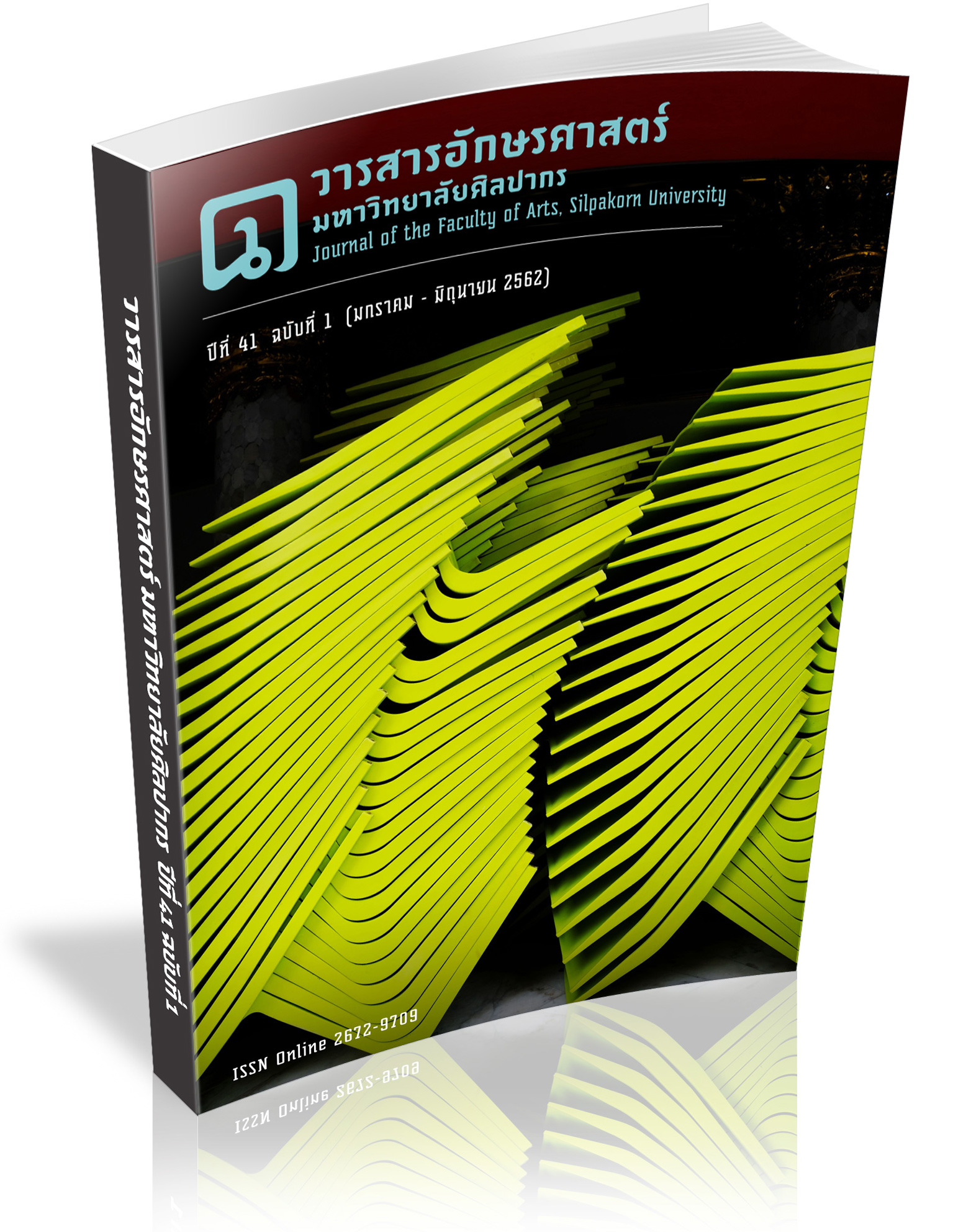Translating, Adapting, and Editing: the TAE Process of Translators
Keywords:
TAE processes of translation, Deep and surface roles of a translator, Translator as the reader, Translator as the translator, Parallel languagesAbstract
Any translated work should be able to convey its original meanings to readers. The translators should be aware of their three roles, including the reader; the translator; and the editor, which in this article is referred to as the TAE (translating; adapting; editing) processes. In the process of translation, firstly the original text must be closely read and interpreted. Then, efficient translating proceeds, and lastly editing and proofreading are done before the completed work is published and made available to the public. This article aimed to emphasize the importance of the TAE process of translation, following the principles of translation proposed in studies of Thai-Chinese and Chinese-Thai translated works. This article was based on the author’s first-hand experience in teaching Thai and Chinese languages to graduates and undergraduates, in addition to many years of being an editor and proofreader for both Thai and Chinese publishing houses.
Downloads
References
Jiraphas, C. (2012). Punctuation mark and symbol in Chinese. Bangkok: Takhata Publication.
Mo, Y. (2014). Red Sorghum. Bangkok: Nanmeebooks. (In Thai)
Nartchamnong, T. (2015). An experience of translation poety from ancient chinese to Thai language. Retrieved from www.siamrath.co.th. (In Thai)
Pinmanee, S. (2012). Translation : from wrong to wright. Bangkok: Chulalongkorn University Press. (In Thai)
Tantanin, T (2007). English reading comprehansion and schema theory. Languege and culture, 29 (Special Issue): 120-133. (In Thai)
Tin. (1969). Jouney to the west. Bangkok: Kurusapa Printing Press. (In Thai)
Tin. (2004). Jouney to the west. Bangkok: Kositt. (In Thai)
Tin. (2009). Jouney to the west volume 1. Bangkok: Sangsanbook. (In Thai)
Werapaspong, P. (2012). Phakvadee Werapaspong : Theory translation (Chapter 1). 29 March, Retrieved from www.happyreading.in.th. (In Thai)
Wiratphokee, P. (2018). Phone interview.
Wongsaart, S. (2014). Hermeneutic approach of Hans-Georg Gadamer : case study of hermeneutic in Visakha Day. Retrieved from http://www.gotoknow.org. (In Thai)
Zhou, W. (2014). The practice review of the manuscript review. Shanghai: Shanghai Dictionary Press. “The first one of the 120 translations of the Romance of the Three Kingdoms, which was translated by the Chinese, was published. The Chinese and The Chinese and English versions of China’s four famous masterpieces were published”. Retrieved from http://www.jfdaily.com (In Chinese)
Downloads
Published
How to Cite
Issue
Section
License
ผู้เขียนบทความต้องยินยอมในข้อกำหนดต่าง ๆ ของวารสารก่อนส่งบทความตีพิมพ์



